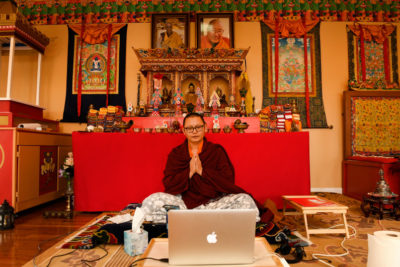
Memorial Day 2020 is almost upon us, a time reserved for collectively remembering the war dead, in theory. As America closes in on 100,000 deaths in only a few months from this virus, more and more people are wondering what meaning these deaths have for the nation and why our country has not engaged in any collective mourning rituals. How will we remember them? Is this carnage similar to war? A natural disaster? A tragic accident that kills scores of people?
In a recent and eloquently written Washington Post opinion piece, Professor Micki McElya starts by echoing the words of the recently impeached president who tried to frame the pandemic as a “war” with an “invisible enemy” and Americans cast as “warriors.” In this script, the dead might be understood as sacrificial heroes in the battle against the virus enemy. If this were the case, then perhaps collective rituals for the dead would be called for, and as is often the case in US history, would be seen as enriching the spirit and soul of the country. People dying for a noble cause in times of war is a deep-rooted, powerful, and highly motivating narrative in human history, and so at first glance might seem to be appropriate in these circumstances.
The administration and the GOP quickly dropped this line of approach as the virus spread with no end in sight and more and more demographic information came to light about where the dead lived, what economic bracket they were in, the color of their skin, their age, and so on. The “war” storyline, which might have been an effective and meaningful strategy in the hands of a capable leader trying to unite Americans, was soon replaced by the “save the economy” storyline. The spirit and soul of the country resides in the markets, not in defending the country from enemies. In this story too, sacrifices must be made so that the nation may live, we hear from voices in the GOP.
In fact, as we have heard from members of the GOP, not all lives are worth saving, even though all fetuses are sacred. The pandemic is an inconvenient reality but the dead still have an economic purpose, though not as glamorously imagined as in the scenario of collectively mourning the martyred warriors who perished in the fight so that the nation might live.


